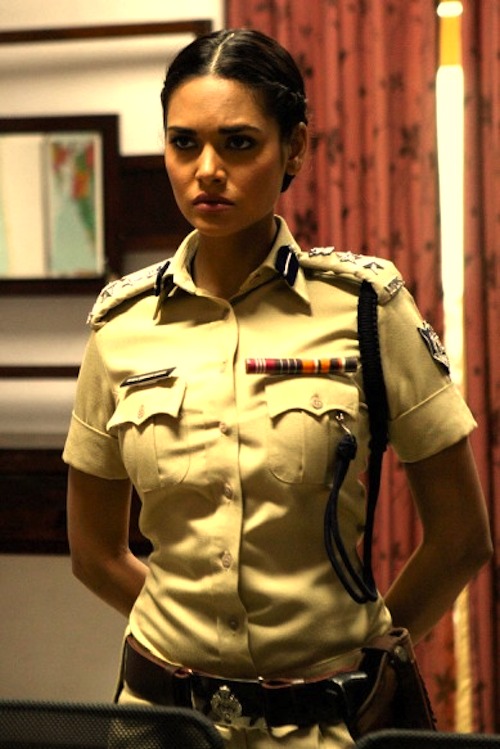By Joe Bendel. Welcome to India’s “Red Corridor.” While referring to the ideology of the militant Naxalite-Maoists who exercise de-facto governing authority in some of the country’s poorest provinces, it applies just as readily to the blood they shed to maintain their power. However, one ambitious policeman is determined to reestablish law and order in Prakash Jha’s Chakravyuh, a selection of the 2012 South Asian International Film Festival, co-starring Bollywood legend Kabir Bedi, who participated in a special intimate on-stage conversation at the Helen Mills Theater this past weekend.
SP Adil Khan is so by-the-book, he must be headed for a fall. He is in for a rude awakening when he accepts his newest posting, replacing a fallen friend and colleague in the Red Corridor. Just like his predecessor, Khan is lured into an ambush by false Naxalite informants. At least Khan lives to tell the tale and change tactics. Unlike his colleagues, Khan tries to win over the poor villagers’ hearts and minds, but whenever one reaches out to the copper, they are publicly executed by the ruthless Rajan. It looks bad for the home team until Khan’s academy drop-out buddy, Kabir, volunteers to go undercover. With no formal ties to the cops, he is the only one with a puncher’s chance of surviving the vetting process.

Thanks to their cover story, Kabir fits in with the Naxalites rather easily. He feeds Khan breakthrough intel, turning the tide against the Maoists. Yet, as Kabir starts to go proletarian, Khan realizes he may have made a mistake sending an impressionable hothead prone to snap decision-making on a sensitive infiltration mission.
This film would give Debbie Schlussel a conniption fit. Basically, it features the Muslim cop Khan (the only character whose religion is expressly identified, at least to western eyes) waging war against an increasingly sympathetic terrorist cult. Indeed, Chakravyuh is problematic in multiple ways, but also fascinating in much the same manner as the best Soviet propaganda films. There is no doubt that India’s rural poor have a hard lot in life, but it is pretty clear by now that the shining path offers no salvation. Perversely, Kabir and Rajan spend most of the film fighting the steel plant Kabir Bedi’s evil industrialist is trying to build, doing nothing to increase local employment opportunities.
Obviously, the irony of China allegedly supporting the Naxalites – while explicitly repudiating the Maoist excesses of the Cultural Revolution – is an irony lost on director Jha. At least he can stage rousing gun battles and spectacular massacres. Jha also integrates the musical numbers into the action in a manner that is more organic than one might expect. Yes, this is most definitely Bollywood.
Jha gets a critical assist from Arjun Rampal, who is an appropriately forceful presence as Khan. Had Jha belived in his mission, Rampal’s Khan might have joined The Raid’s Iko Uwais as the second great Muslim action hero of the year. Unfortunately, we are clearly meant to identify more with Abhay Deol’s Kabir, but his brooding is more petulant than Byronic. Still, Chakravyuh has the beautiful and well-armed Esha Gupta as Khan’s fiancée and comrade, Rhea Menon. SAIFF special guest Kabir Bedi also chews the scenery in a manner befitting a former bond villain (the lethal Gobinda in Octopussy).
Chakravyuh is simplistic and didactic, but it is never dull. Suitable for action fans who are able to discern and discount propaganda and dogma, Chakravyuh is now playing at the AMC Loews Newport Centre in Jersey City, following its North American premiere at the 2012 SAIFF.
Posted on October 29th, 2012 at 1:35pm.